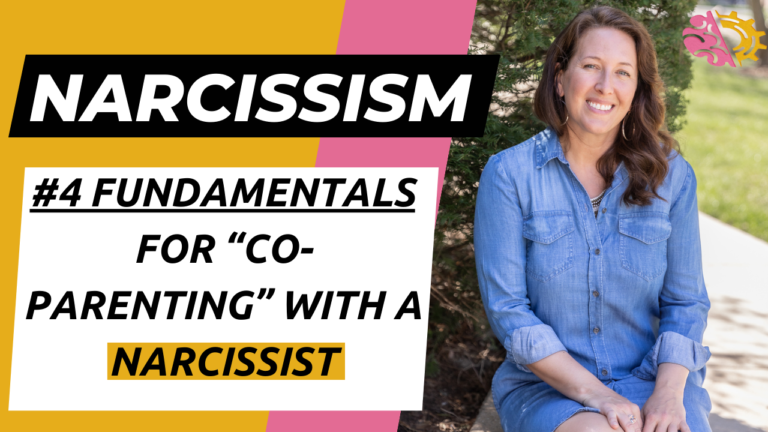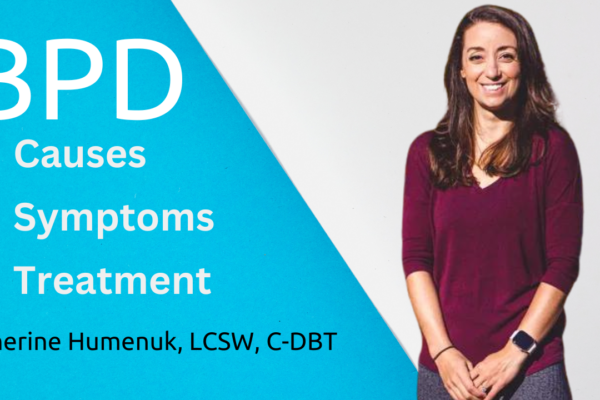In this episode, you will learn:
-How to Co-Parent with a Narcissist While Protecting Your Peace
-4 fundamentals to protecting your peace -Why co-parenting with a narcissist doesn’t work
-Helpful tips for successful parallel parenting -Common Roles Assigned to Children within Narcissistic Family Systems & How to Support Your Children
Table of Contents
Co-Parenting with a Narcissist: Protecting Your Peace and Supporting Your Children
Introduction
Co-parenting can be challenging under the best circumstances, but when one parent exhibits narcissistic traits, it becomes even more complex. This resource on 4 Fundamentals for “Co-Parenting” with a Narcissist aims to provide parents with an in-depth understanding of the challenges involved in co-parenting with a narcissist and comprehensive strategies for maintaining personal well-being while supporting children caught in this difficult situation.
Understanding Narcissistic Co-Parenting
The Challenge of Co-Parenting with a Narcissist
Co-parenting with a narcissist is often ineffective due to the narcissist’s self-centered nature and lack of empathy. Traditional co-parenting strategies that rely on cooperation and mutual respect are unlikely to succeed in this context. Narcissistic individuals often exhibit the following behaviors that complicate co-parenting:
1. Lack of empathy towards the child’s needs
2. Manipulative tactics to control situations
3. Inability to compromise or collaborate
4. Tendency to undermine the other parent’s authority
5. Use of the child as a pawn in conflicts
Shift to Parallel Parenting
Rather than attempting traditional co-parenting, experts recommend a parallel parenting approach when dealing with a narcissistic ex-partner. This method involves:
1. Minimizing direct contact with the narcissistic parent
– Use written communication (e.g., emails, text messages) instead of face-to-face interactions
– Utilize co-parenting apps to document and manage communication
2. Communicating only about essential child-related matters
– Stick to factual information about schedules, health, and education
– Avoid discussing personal matters or responding to provocations
3. Setting clear boundaries and adhering to them consistently
– Establish specific rules for communication and interactions
– Document agreements and refer to them when boundaries are crossed
4. Focusing on your relationship with your children independently of the other parent
– Create a separate, nurturing environment during your parenting time
– Avoid discussing the other parent negatively with the children
Protecting Your Peace: Four Fundamental Strategies
When co-parenting with a narcissist, it’s crucial to prioritize your mental health and well-being. Here are four key strategies, expanded with practical tips:
1. Establish and maintain firm boundaries
– Create a detailed parenting plan that outlines responsibilities and expectations
– Use a businesslike tone in all communications
– Limit conversations to child-related topics only
– Set specific times for communication and stick to them
2. Practice emotional detachment
– Develop mindfulness techniques to observe your emotions without reacting
– Use the “grey rock” method: be as uninteresting and unresponsive as possible to provocations
– Focus on facts rather than emotions when dealing with the narcissistic co-parent
– Seek therapy or counseling to work through emotional triggers
3. Develop a strong support system
– Join support groups for parents dealing with narcissistic ex-partners
– Cultivate relationships with understanding friends and family members
– Consider working with a therapist or counselor specializing in high-conflict divorces
– Engage in community activities or hobbies to broaden your social network
4. Focus on self-care
– Establish a regular exercise routine to manage stress
– Practice relaxation techniques such as meditation or deep breathing exercises
– Prioritize sleep and maintain a healthy diet
– Engage in activities that bring you joy and fulfillment
– Set aside time for personal growth and development
Supporting Children in Narcissistic Family Systems
Common Roles Assigned to Children
In narcissistic family systems, children may be unconsciously assigned specific roles. Understanding these roles can help in supporting affected children:
1. The Golden Child
– Often idealized and favored by the narcissistic parent
– May struggle with perfectionism and unrealistic expectations
– Can experience difficulty forming their own identity
2. The Scapegoat
– Blamed for family problems and often the target of criticism
– May develop low self-esteem and struggle with self-worth
– Often the first to recognize and challenge the family dysfunction
3. The Lost Child
– Tends to withdraw and avoid attention
– May struggle with social interactions and forming relationships
– Often experiences feelings of invisibility and neglect
4. The Mascot
– Uses humor to deflect tension and negative emotions
– May have difficulty expressing genuine emotions
– Can struggle with anxiety and feeling responsible for others’ happiness
Strategies for Supporting Children
1. Provide a stable, nurturing environment
– Maintain consistent routines and expectations in your home
– Create a safe space where children feel comfortable expressing themselves
– Offer unconditional love and support, separate from their achievements
2. Encourage open communication
– Practice active listening without judgment
– Validate children’s feelings and experiences
– Use age-appropriate language to discuss complex family dynamics
– Encourage children to express themselves through art, writing, or play
3. Teach healthy boundaries
– Model appropriate boundary-setting in your own relationships
– Help children identify and articulate their own needs and limits
– Teach them it’s okay to say “no” and respect others’ boundaries
– Discuss the difference between healthy and unhealthy relationships
4. Model healthy coping mechanisms
– Demonstrate problem-solving skills when facing challenges
– Show how to express emotions in a healthy, constructive manner
– Practice self-care openly and involve children in stress-reducing activities
– Encourage resilience by framing setbacks as opportunities for growth
5. Seek professional help
– Consider family therapy to address systemic issues
– Explore individual therapy options for children to process their experiences
– Look into support groups designed for children of narcissistic parents
– Consult with school counselors or therapists specializing in child development
Conclusion
Co-parenting with a narcissist presents unique and significant challenges, but by focusing on protecting your peace and supporting your children, it’s possible to navigate this difficult situation effectively. Remember that self-care and maintaining clear boundaries are essential for your well-being and your ability to support your children through this complex family dynamic. By implementing these strategies and seeking professional help when needed, you can create a healthier environment for both yourself and your children, fostering resilience and emotional well-being in the face of narcissistic co-parenting challenges.
*Some of the links found here are affiliate links: As an Associate I earn from qualifying purchases by way of commission at no additional cost to you. See full disclaimer here:
This Episode Is Brought To You By:

Stream live to YouTube and all of your socials at once; Record your videos and podcasts; edit and post shorts and clips.
This tool is a Game-Changer for any content creator 🙌

TherapyNotes® is a complete practice management system with everything you need to manage patient records, schedule appointments, meet with patients remotely, create rich documentation, and bill insurance, right at your fingertips. Our streamlined software is accessible wherever and whenever you need it.
This tool is a MUST for any practice owner!
BIO: Susie Miller_Wendel
Learn More About Susie Miller-Wendel and 4 Fundamentals for “Co-Parenting” with a Narcissist
CONTACT AND SOCIALS:
-Website: www.susiemillerwendel.com
Watch The Interview
If you liked this episode, be sure to check out my full playlist of interviews here: https://youtube.com/playlist?list=PLnPL9gahfhWatKmy2YSyU0jt20h_jrj3H
Listen To The Interview
*Some of the links are affiliate links: As an Associate I earn from qualifying purchases by way of commission at no additional cost to you.
Want to learn more? Check out my top picks for books on self-improvement and recovery HERE!
The Mental Health Toolbox: Resources and Support for Therapists Seeking Growth & Impact.
Mission Statement: To equip therapists with the tools, knowledge, and strategies they need to enhance their practice, boost their income, and ultimately, improve the lives of their clients. We achieve this through accessible, high-quality content, practical resources, and a supportive community.
NEED CRISIS HELP? If you need immediate crisis help with your depression, you can call the National Suicide Prevention Lifeline at 1-800-273-8255 or text “START” to 741-741
OUTSIDE THE UNITED STATES: See International Suicide Hotlines
WHERE TO FIND MENTAL HEALTH HELP:
-NAMI Referral Helpline: 1-800-950-6264
-California’s Statewide Mental Health Helpline: 1-855-845-7415
ASK: If you have a question you’d like me to answer here on the blog (even if you think it’s a silly one!), please use the form on the CONTACT ME page, or the comment section below. I would be happy to take a poke at it and provide a long form answer when appropriate.
SHARE: Also, be sure to share it with a friend, as there is still a lot of work to be done in raising mental health awareness.
SUBSCRIBE to get your FREE MOOD TRACKING TOOL and quick Mental Health Hacks in addition to this newsletter. Sign-up with the form below.
[mc4wp_form id=”142″]
admin
Latest posts by admin (see all)
- How to Build a Referral Engine Without the “Hustle”: - January 12, 2026
- ADHD Tips for Therapists | with Dr. Jennifer Dall - May 28, 2025
- Why Therapy Fails Men (And How to Fix It) – Insights with Marc Azoulay - May 11, 2025













